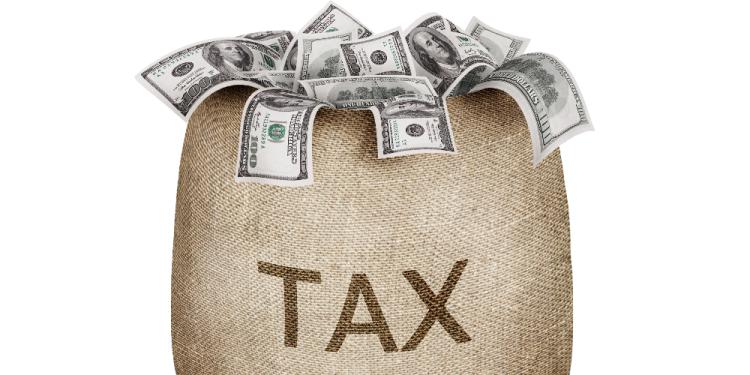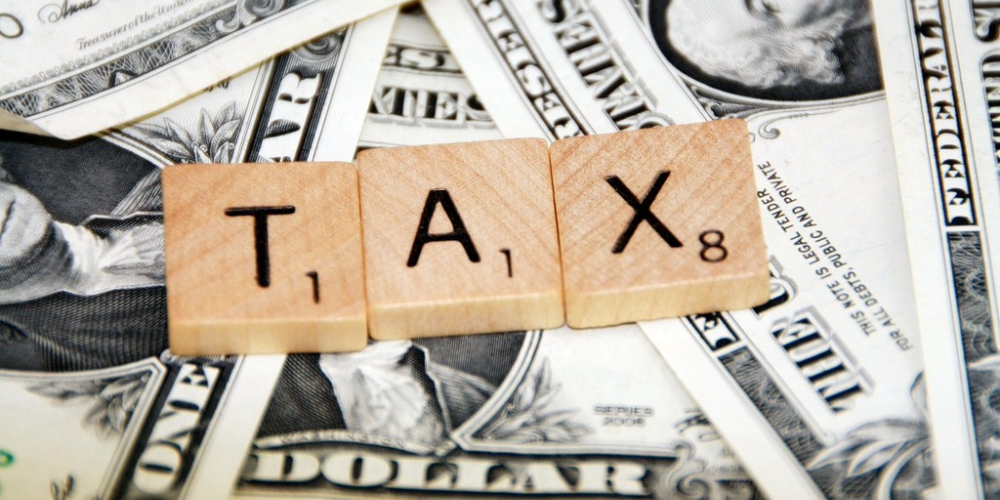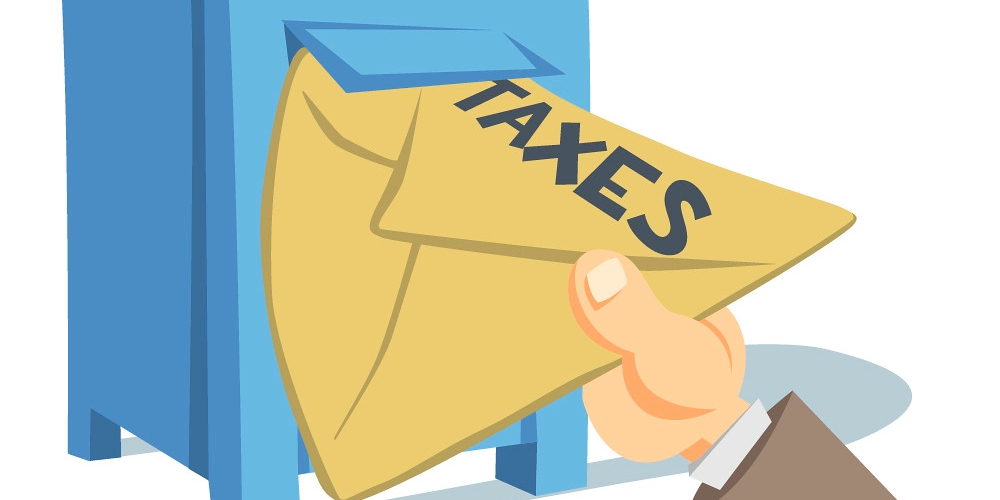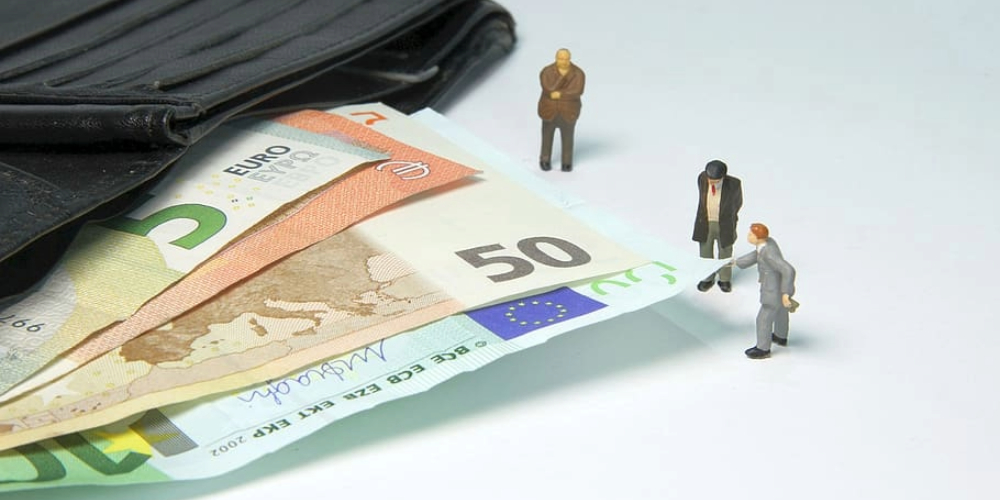When Do You Need To Start Paying Gambling Taxes In The US?
Posted: August 25, 2023
Updated: August 25, 2023
When we hear about those lucky winners who manage to land eye-watering amounts of cash from the Powerball or a progressive jackpot at the US casino, we probably imagine they take the total amount home. But in reality, there are inescapable taxes to be paid. If you win in the casino, they hold back 25% of the payout for the tax man. However, in the UK, because gambling is seen as a pastime, most casino winnings are tax free.

When we hear about those lucky winners who manage to land eye-watering amounts of cash from the Powerball or a progressive jackpot at the US casino, we probably imagine they take the total amount home. But in reality, there are inescapable taxes to be paid. If you win in the casino, they hold back 25% of the payout for the tax man. However, in the UK, because gambling is seen as a pastime, most casino winnings are tax-free.
How Much Money Can You Win Without Paying Gambling Taxes In The United States?
During the year 2021, approximately 76% of individuals who visited Las Vegas, Nevada engaged in gambling activities at various casino tables. Among the gamblers, whether in locations like Las Vegas, Atlantic City, New Jersey, or even online platforms like King Billy Casino, a fortunate minority managed to secure substantial winnings. However, it’s important to note that sizable gambling winnings don’t translate to retaining the entire amount won. The full value of gambling taxes is decided by the Internal Revenue Service (IRS). They employ mechanisms to ensure its rightful share of these earnings. Furthermore, this taxation isn’t limited solely to casino gambling.
Winnings stemming from sources such as lotteries, horse races, off-track betting, sweepstakes, and game shows are also deemed taxable. But there’s a silver lining in the form of potential deductions for gambling losses, provided you choose to itemize your deductions. Yet, these deductions are only permissible up to the limit offset by your total winnings.
Also, you must possess verifiable records of both your gains and losses. Because of this, it’s prudent to familiarize yourself with the ins and outs of gambling taxes. You need to know the laws surrounding them before embarking on gaming sessions on the Las Vegas strip. This will help you avert possible conflicts with the IRS in the future.
Key Points About Gambling Taxes To Remember
- In cases where your winnings surpass a specific threshold, the entity paying out the winnings will immediately deduct 24% as tax withholding.

- Upon filing your annual tax return, you will be required to declare both your earnings and the tax payments made.
- Depending on your individual tax bracket, you might either owe additional gambling taxes or be eligible for a refund.
- It’s possible to deduct gambling losses up to the amount of reported winnings, underscoring the importance of maintaining comprehensive records.
Gambling Taxes – Implications For Gambling Winnings
In scenarios where you accrue substantial winnings from any legally operated game of chance, the casino responsible for disbursing your winnings will withhold 24% of the total amount for the purposes of gambling taxes. Simultaneously, they will furnish you with IRS Form W-2G, which documents the transaction. The definition of “substantial winnings” varies based on the particular game involved.
For instance, this threshold is set at $1,200 or more for slot machines or bingo, and at $1,500 for keno. In situations such as sweepstakes, wagering pools, and lotteries, the threshold is $5,000. The designated 24% of the won sum is withheld and remitted to the IRS, substantiated by the Form W-2G.
This 24% withholding represents an estimated tax amount. Depending on your tax circumstances, you might end up receiving a portion of it as a refund or having additional tax obligations. Notably, winnings from skill-based games like blackjack don’t face immediate withholding. Nevertheless, you’re still legally obligated to declare the income and fulfill your tax responsibilities.
Deviation From Regulations
Certain table games, including blackjack, craps, and roulette, are categorized as skill-based rather than games of chance. In these instances, casinos aren’t obliged to retain gambling taxes or furnish a W2-G form to players who achieve substantial winnings.
On the contrary, slot machines fall into the chance-based category. Irrespective of this, when you exchange your table game chips for cash, the precise amount you initially wagered isn’t fully known by the casino. Nonetheless, this doesn’t exempt you from the responsibility of disclosing your winnings to the IRS. During the annual tax filing, you’ll need to declare your winnings.
So it’s prudent to maintain comprehensive records of your gambling activities that cover both losses and gains. In situations where your expenditure amounts to $2,000 to achieve a $2,000 gain, it’s possible that you could avoid gambling taxes altogether. In 2018, the Supreme Court granted U.S. states the authority to legalize sports betting based on their discretion. Presently, gambling remains unlawful in five states, namely California, Utah, Idaho, Alabama, and Alaska. In an additional nine states, there is still some form of ongoing legislative procedure.
Declaration Of Gambling Gains
When compiling your annual tax return for the year you secured gambling earnings, you will report the income, along with any pre-paid gambling taxes, under the “Other Income” section of Form 1040. It’s important to note that the 24% tax previously remitted constitutes an estimated payment. The actual sum you owe, or potentially might be refunded, hinges on your overall annual income.

The current structure comprises seven tax brackets. For the 2022 tax period, surpassing an individual income of $170,050, inclusive of your winnings, is necessary to move beyond the 24% tax bracket and incur additional gambling taxes on your gains. Should your total earnings fall beneath $89,075, you could be eligible for a refund.
Gambling Taxes – Implications For Professional Gamblers
For individuals whose primary occupation involves gambling, the earnings from such activities typically qualify as standard earned income and are subject to the regular applicable income tax rate. Self-employed individuals must accurately document their income and expenses using Schedule C. Proficient gamblers can subtract their gambling losses as work-related expenditures through Schedule C, distinct from Schedule A.
Tax Regulations For Nonresident Gambling Income
Non-U.S. residents must declare their gambling winnings using Form 1040NR. According to online gambling news in the US, these earnings are generally taxed at a fixed rate of 30%. Nonresident aliens are generally ineligible to deduct gambling losses. However, due to a tax agreement between the U.S. and Canada, Canadian citizens are permitted to deduct their gambling losses, up to the extent of their gambling gains.
Can Gambling Losses Be Deducted?
You’re eligible to subtract any money lost from your gambling earnings for tax purposes. Yet, losses exceeding your winnings may not qualify for a tax deduction. Even when your luck runs dry in Las Vegas, there’s no silver lining in terms of reduced tax responsibility.
Are Gambling Winnings Subject To State Gambling Taxes?
Certain states mandate that individuals declare their gambling prizes in the state where they were won. Most states levy gambling taxes on all income earned within their borders, regardless of your residency. Moreover, your home state might require you to report your winnings. But it could provide a credit or deduction for taxes already paid to a different state.
Do Casinos Inform The IRS About Gambling Profits?
Yes, but specific thresholds must be reached to trigger such reporting. At a horse racing venue, earnings surpassing $600 or 300 times your initial wager need to be reported.

For slot machines and bingo, any winnings exceeding $1,200 must be reported. In poker tournaments, the threshold is set at $5,000.
Gambling Taxes In The United Kingdom
In the United Kingdom, taxation of gambling-related activities covers a variety of activities. These include casino games at the best online casino sites in the US, like King Billy Casino, lotteries, and other forms of betting. Generally, bettors don’t need to pay taxes on their gambling winnings. This is because the UK considers gambling to be a form of leisure rather than a source of income. This applies to casino games, lotteries, and similar activities.
The UK government imposes gambling taxes on the operators rather than on players. Casinos, bookmakers, and other gambling providers must pay various levels of taxation based on their gross gaming revenue. This approach helps ensure that the industry contributes to the government’s revenue without burdening individual players.
However, the landscape can vary. For instance, the National Lottery in the UK is largely tax-free for players. All the winnings are exempt from income and capital gains tax. Nevertheless, other forms of gambling, such as betting on horse racing or sports events, might have gambling taxes or levies. It’s essential for gamblers to stay informed about the specific regulations surrounding different types of gambling activities. This is a way of avoiding any surprises. While most gambling winnings remain untaxed, staying up-to-date with the latest rules will help gamblers make the est decisions about their various betting and gaming opportunities.
In Summary – Gambling Taxes In The US
According to IRS guidelines, gambling winnings are subject to full taxation. Nevertheless, you can potentially deduct gambling losses up to the amount of your winnings if you opt for itemizing deductions on your tax declaration. It’s important to keep meticulous records of both your wins and losses to substantiate your claims for gambling taxes anf their deductions. Of course, if the US is too expensive tax-wise, then there are plenty of other countries where you can gamble but pay the man much less.
Click here to the live casino at King Billy Casino












